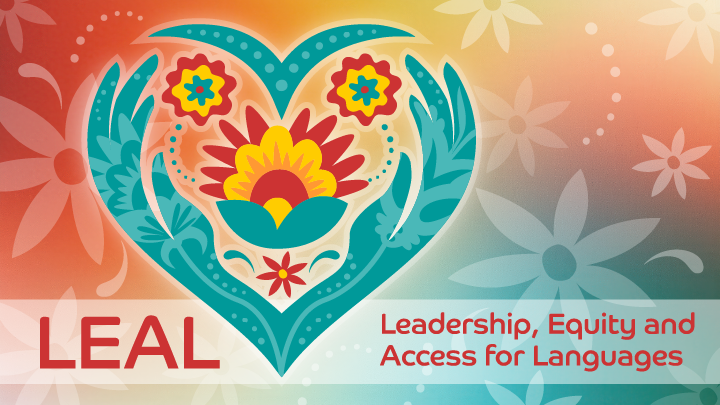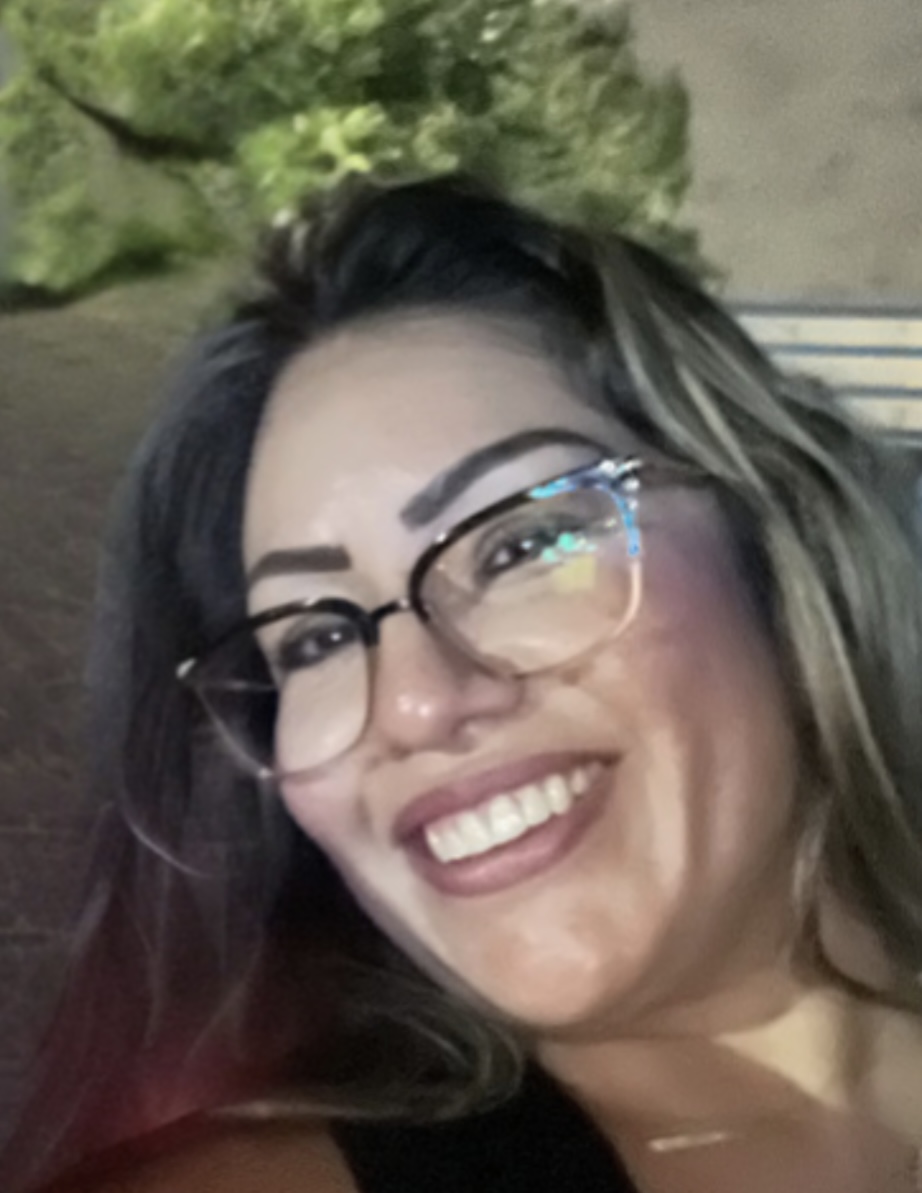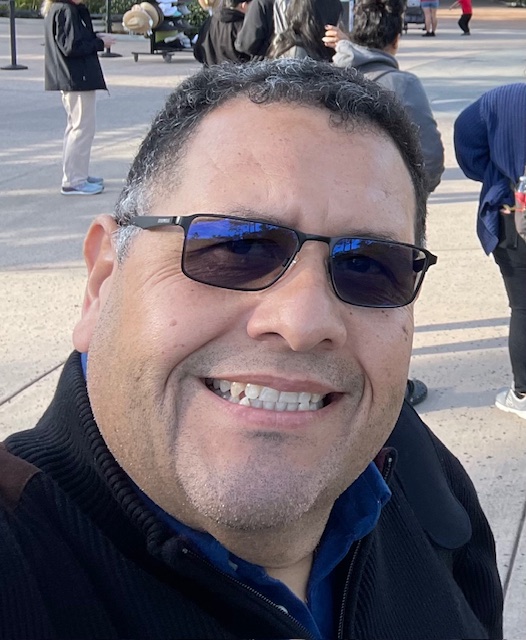Furthering education and affirmation for multilingual learners

Both Zuleika Rodriguez and Adrian Hernandez share a similar thought — they wonder what their lives would have been like if, when growing up, their schools had given them more support and confidence in their academic abilities.
That thought stuck with them and ignited a fire in them to become the positive role models to their students that they needed when they were younger.
When they found out about SDSU’s Leadership, Equity and Access for Languages (LEAL) Project, Rodriguez and Hernandez jumped at the opportunity to learn more about how to support their students.
“I waited for a long time to be able to find a program like LEAL,” Hernandez said. “I found a familial sense where you feel supported at every step. So Dr. Cristina Alfaro, Dr. Saúl Maldonado, Elva de Baca and my professors from LEAL, they’ve been very supportive, and they are inspiring.”
Added Rodriguez: “It helped me develop confidence in myself and take pride in my identity, including any accents I may have, without shame. It affirmed that I am knowledgeable and capable. I truly feel that every professor, the program director, and everyone involved equipped us with the tools we need to succeed, not just for our own growth, but to better serve our students and their families.”
Launched in 2022 and affiliated with the Center for Equity and Biliteracy Education Research (CEBER), LEAL provides in-service teachers with instructional approaches and tools specifically sensitive to the language demands of multilingual learners.
The program generates much-needed leadership in this important area across the San Diego and Imperial Valley regions. It offers professional learning to elevate teachers’ knowledge, dispositions and skills, emphasizing their contributions to policymaking at their schools and districts through equity and global perspectives.
Zuleika Rodriguez
 Rodriguez participated in the first LEAL cohort in the 2023-2024 academic school year. Her research explored providing resources and support for parents of multilingual learners to understand the importance of their children’s reclassification and meeting A-G requirements (specific course requirements that Californian high school students must meet to be eligible for admission to the University of California and the California State University systems.)
Rodriguez participated in the first LEAL cohort in the 2023-2024 academic school year. Her research explored providing resources and support for parents of multilingual learners to understand the importance of their children’s reclassification and meeting A-G requirements (specific course requirements that Californian high school students must meet to be eligible for admission to the University of California and the California State University systems.)
When Rodriguez began LEAL, she was an English language instructional resource teacher for the San Diego Unified School District. During that time, she noticed while holding English Learner Advisory Committee (ELAC) meetings, which are the meetings for the parents of English learners or newcomers, many parents did not know their kids were classified as English language students (ELS) nor what that entails. She also recognized that parents were worried that their children in dual language programs would not learn as much English.
Through her research, Rodriguez hopes to promote more parent involvement in their children’s education and demystify the reclassification process. She also wants to inform parents that dual language programs are beneficial.
“Now that I’m in this position as an assistant principal (at Valley Elementary in Poway), I can advocate for (students) by saying, this is important — they need their (English language development) ELD time. They need those structures in place so that they can become better writers and readers. They need partner talk. They need collaboration and they need to also see that the teacher has their best interest.”
Adrian Hernandez
 A teacher at William Moreno Junior High School in Calexico, Hernandez is a participant in the current LEAL cohort.
A teacher at William Moreno Junior High School in Calexico, Hernandez is a participant in the current LEAL cohort.
Hernandez also hopes to promote more parent involvement in their children’s education as he has noticed the numbers of parental involvement dwindling every year at events such as open houses, parent nights and parent meetings.
He says there is a strong correlation between parent involvement and student achievement — noting that less parental involvement shows students having more discipline issues and poorer grades.
“Parent involvement, teacher involvement and student involvement are the holy trinity of education,” Hernandez said. “When you have the three working together, student success increases by a landslide.”
At Hernandez’s school, students come from a variety of backgrounds. He notes that knowing how to curate what you are communicating so that students can comprehend your teaching is the most important skill as a teacher.
“They need to be able to reach their background knowledge,” Hernandez said. “Maybe they don’t remember the information that I'm giving them in the academic terms that I’m using, but by giving them examples in both languages, Spanish and English, they can go back and say, like, ‘Oh, okay. So my dad is a mechanic, so when he does this, that's creating friction, so that's generating heat. So that’s why he has to use oil, the pistons and stuff like that.’ They have all this knowledge, they just need me to provide a way for them to be able to recall it.”
Hernandez said being at a multilingual school taught him much about perseverance and not quitting on students. He has always tried to be proactive in contributing to the betterment of the school environment and eager to help his students, whether by keeping his classroom doors open or participating in LEAL to better advocate for them.
“Whatever success means, it’s different for everyone,” Hernandez said. “But for me, success is being able to serve as something, as someone who can help other people achieve their dream.”
LEAL in action
Both Rodriguez and Hernandez know what it is like to be underestimated — and both are making efforts to change that notion with the students at their schools. LEAL instilled pride, passion, and a desire for positive change that they want to echo back for their students.
“Once I went into LEAL, it gave me courage and it gave me boldness to speak out and to advocate for these students and families as well,” Rodriguez said. “Not only that, but it gave me a sense of empowerment because I always thought that I’m not good enough [because I am an English learner]. I can’t do this. For me, it’s like I’ve been working through all these obstacles and I want my students to overcome those things as well and to help them be successful.”
“The teachers are amazing. Seldom do you encounter a group of people who walk the path you know,” Hernandez said. “They speak from the heart and they make you feel that they are truthful to their beliefs, and they just inspire me. We all have been touched and inspired by the leadership and expertise of our professors.”
That sentiment resonates with Rodriguez, as well.
“All the professors, they truly are committed and they really believe in us,” Rodriguez said. “They’re investing in us so that we can do the work that they’ve done already. It's kind of like they're investing for the future — they need future leaders and they need future principals.
“You go on this program, your perspective will change, and then you will be an agent of change in your school site and bring other teachers along.”
LEAL is currently recruiting for its third cohort: Project LEAL (C3) - Participant Interest Form.

